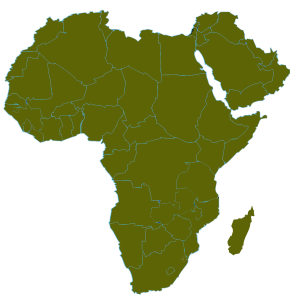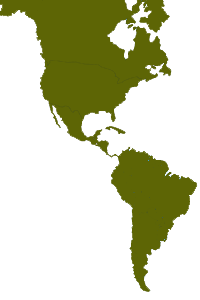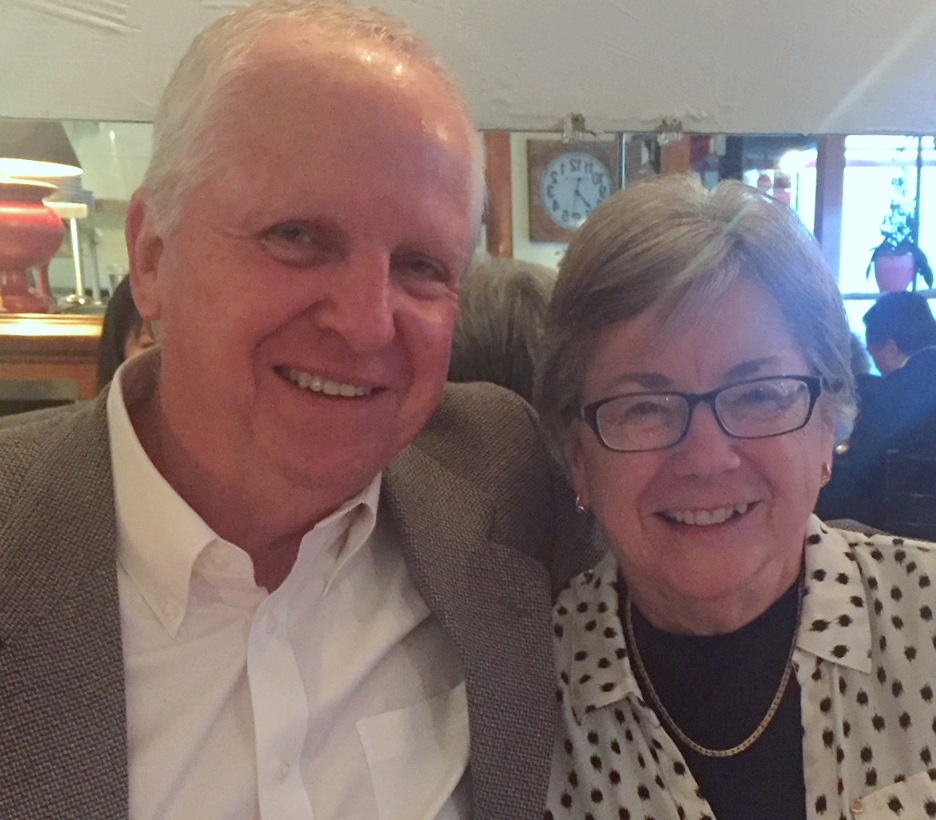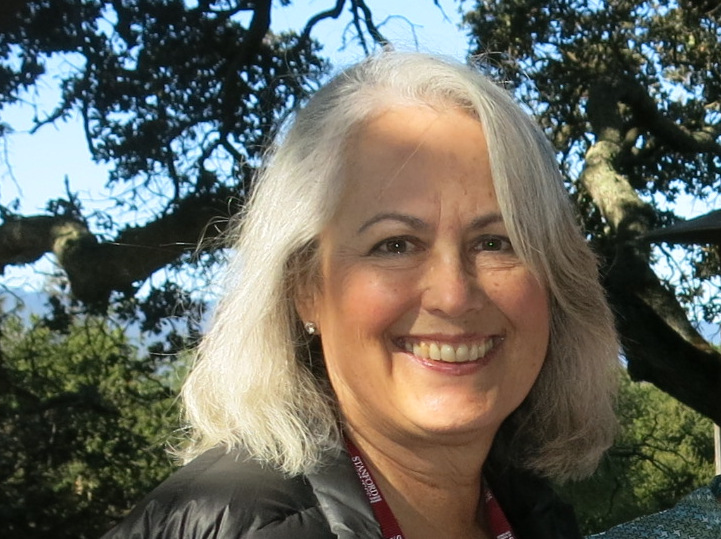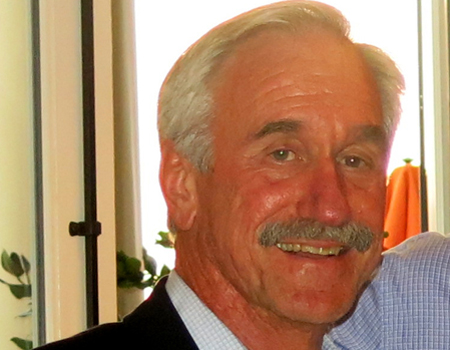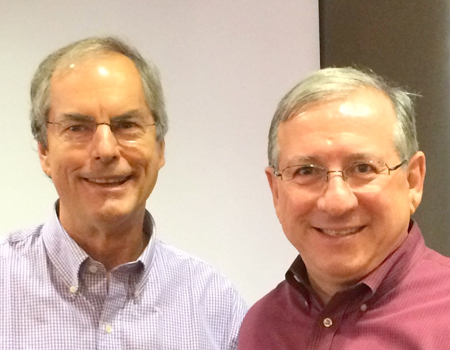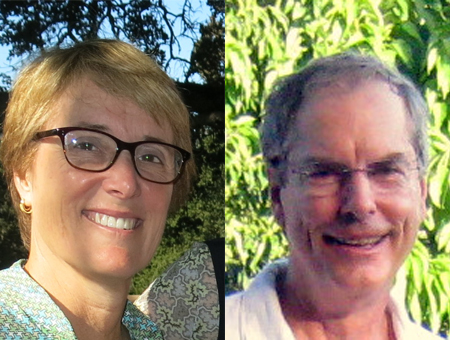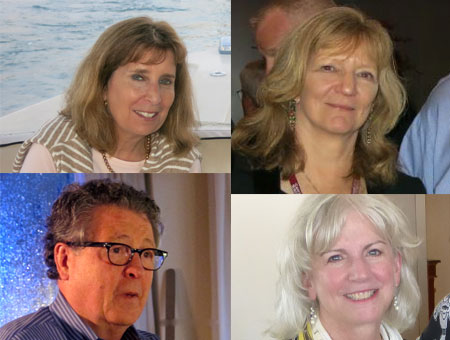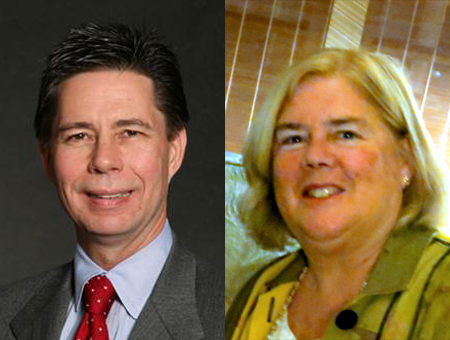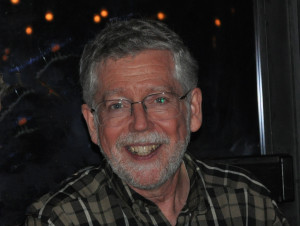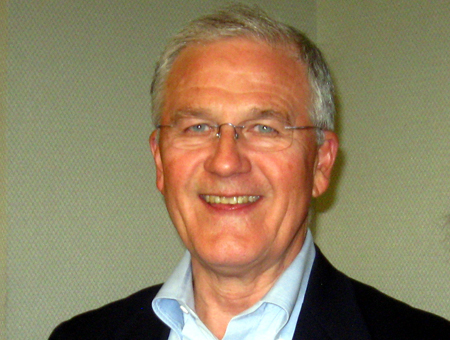2017 Annual Report
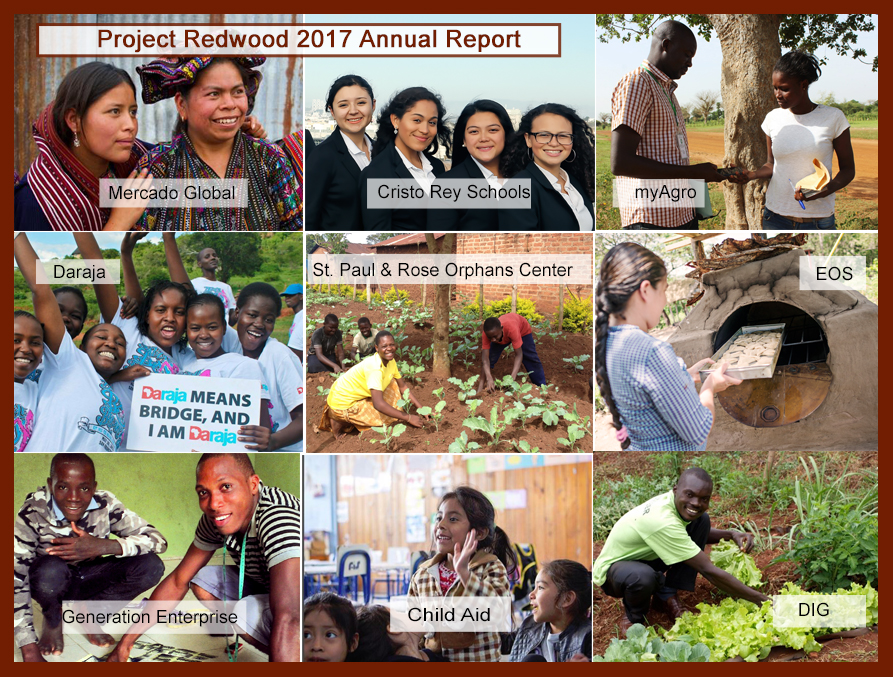
A social venture initiative of Stanford Graduate School of Business alumni
Project Redwood granted $195,250 to eight projects in 2017. They, along with a ninth project carried over from 2016, directly impact tens of thousands of people living in poverty
Click through to the grantee page for more information.
Daraja
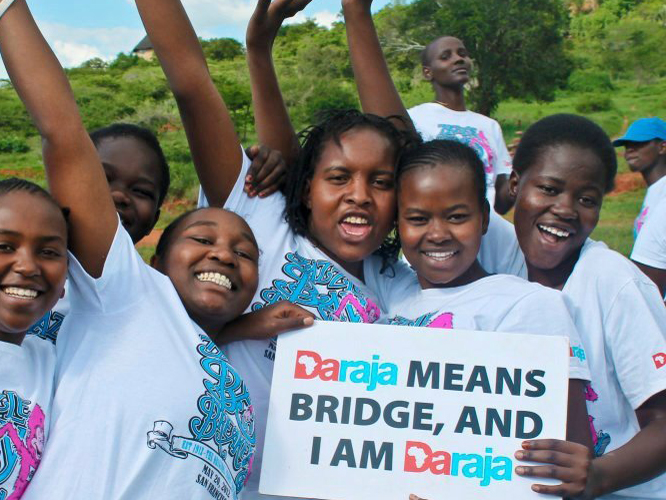
Kenya
Daraja Academy provides a secondary school education for girls from poor communities in Kenya and prepares them for university and employment. The 2017 grant awarded to Daraja funds a Career-Readiness Project that seeks to close employability gaps by arming Daraja students and graduates with concrete income-earning skills that better match Kenyan job market demands. Faster employability and higher wages are the goals.
Development in Gardening
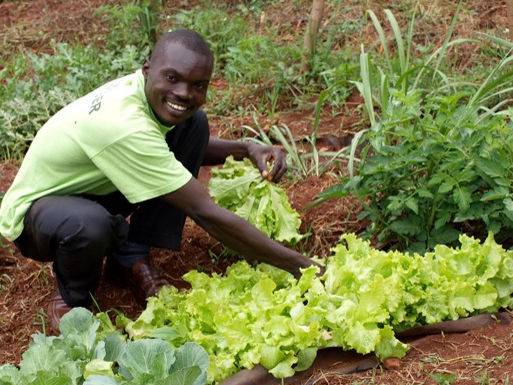
Uganda
Development In Gardening trains small holder farmers to boost production and income. A political delay in carrying out the 2016 grant project resulted in an extension into 2017. The revised version supports a Leadership and Sustainable Agriculture program including training, seed funding and ongoing guidance and advisory support in Haiti, aimed at development of small-plot farming as a business.
Generation Enterprise
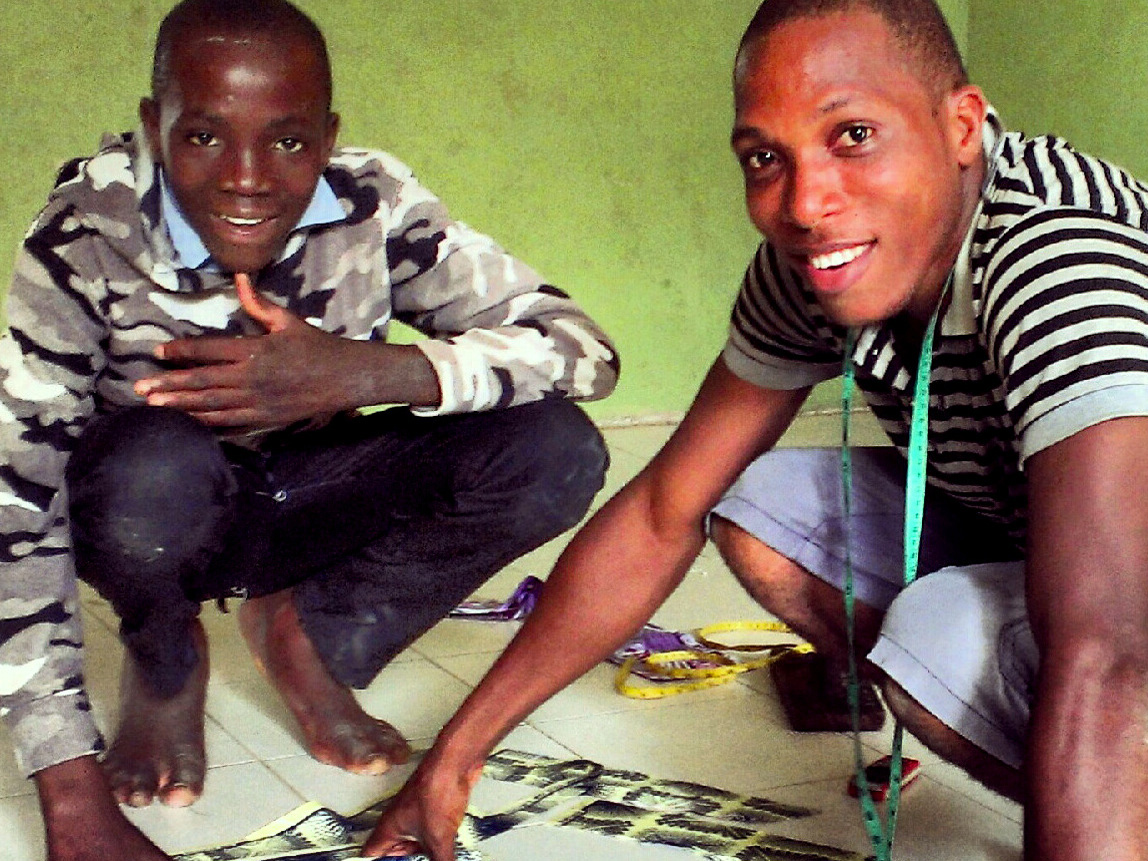
Nigeria
Generation Enterprise partners with at-risk youth to co-create and build sustainable businesses that generate jobs and wealth in slum communities in Nigeria. The grant-funded program includes training in professionalism (proposal writing, computer skills, dress, hygiene,) and more advanced skills that enable the youth to be self-employed.
myAgro
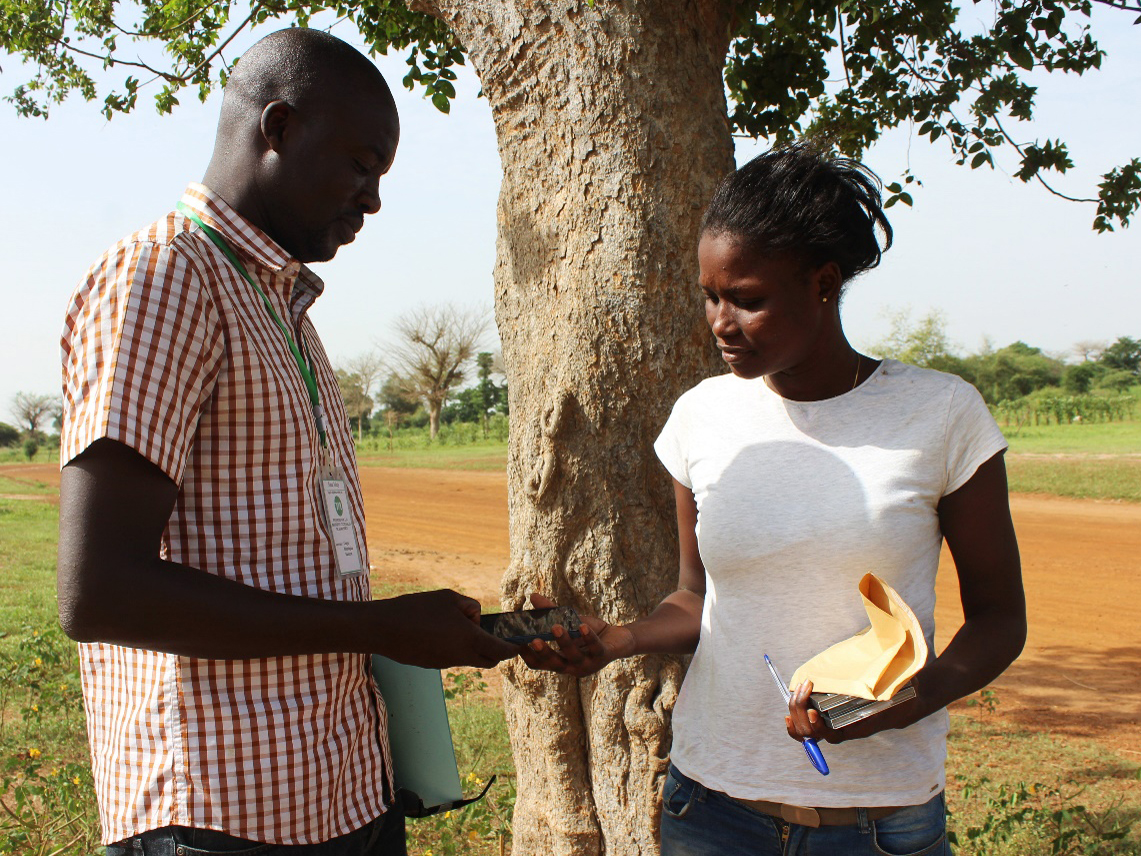
Mali
myAgro trains and helps independent, small-scale farmers in West Africa save for fertilizer and seed needed at planting time by using their mobile phone to save in their myAgro account and “scratch” cards to purchase seed and fertilizer from local vendors when needed. This grant will pay for infrastructure and training of a team expanding the myAgro program and network into Senegal.
St. Paul and Rose Orphans Center
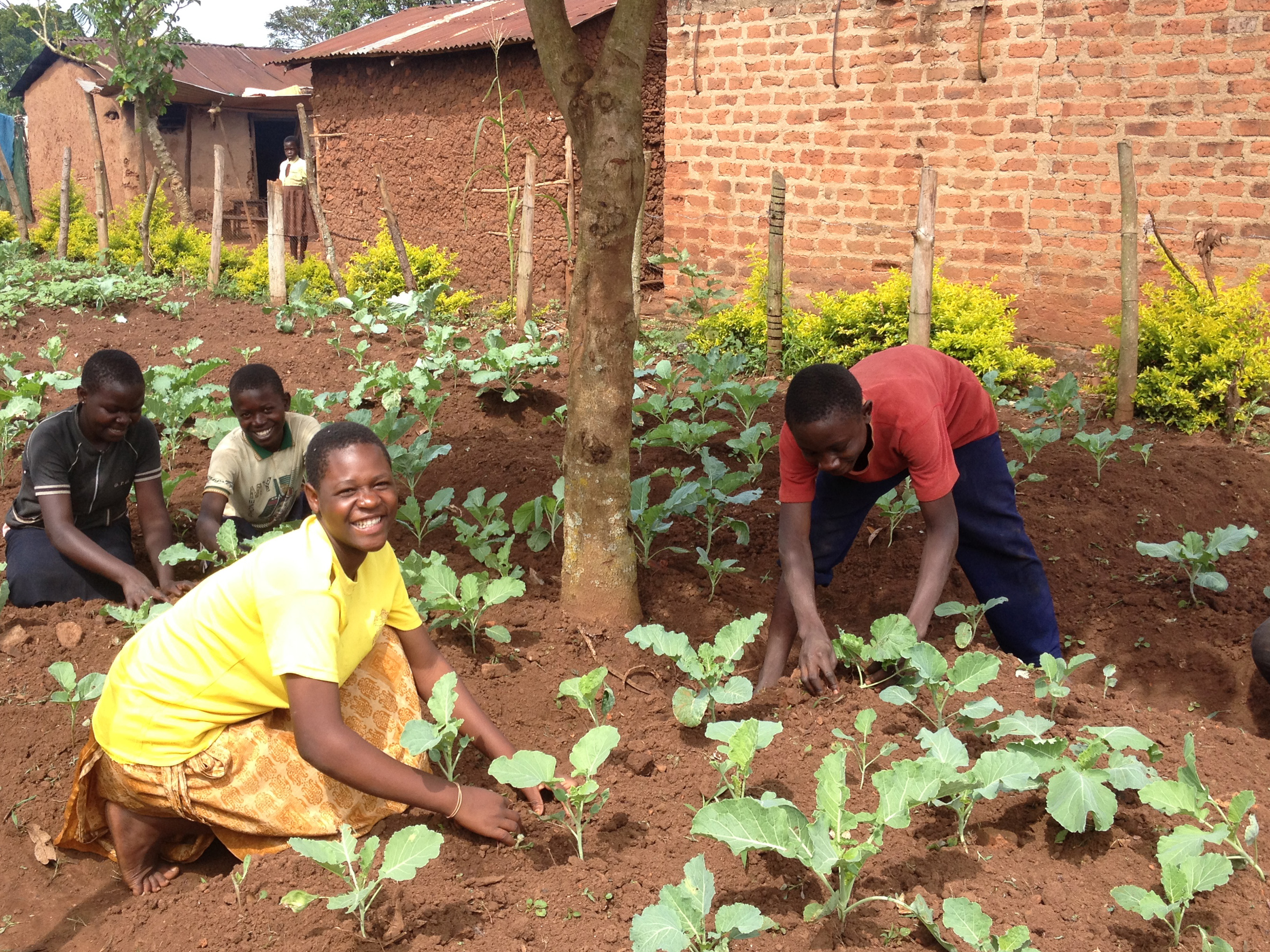
Uganda
The Orphanage is home, family, and school to 73 boys and girls orphaned from wars, AIDS and famines in Uganda. Schooling covers primary, secondary and limited technical education. This grant expands facilities at the Orphanage and provides income-earning training to 125 to 200 of the 500 local residents, covering business basics, sustainable agriculture, animal husbandry, culinary skills, tailoring/sewing, and hairdressing.
ChildAid
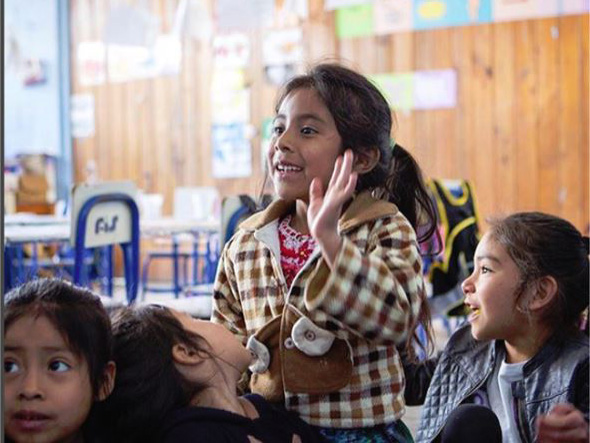
Guatemala
This program works to improve the literacy rate among the indigenous people living in the rural villages of Guatemala. This grant allows Child Aid to scale beyond their current size and add trainers in a new location.
Cristo Rey
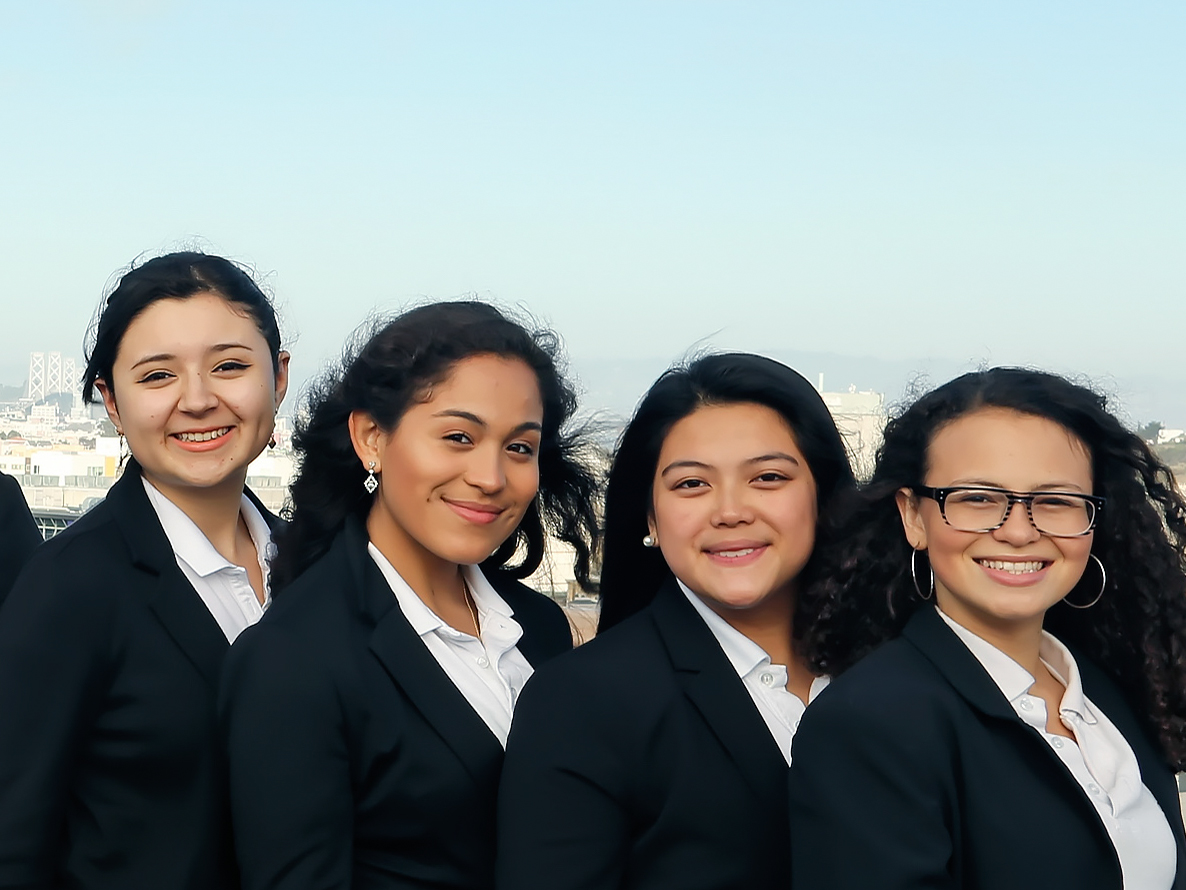
Harlem, Brooklyn, San Francisco
Cristo Rey high schools offer students from inner-city, low-income families a quality education and real-life work experience via their Corporate Work Study Program. The 2017 grant provides software licenses and instructor laptops to further Skillsoft training for 860 students at three schools in New York City, Brooklyn and San Francisco.
EOS
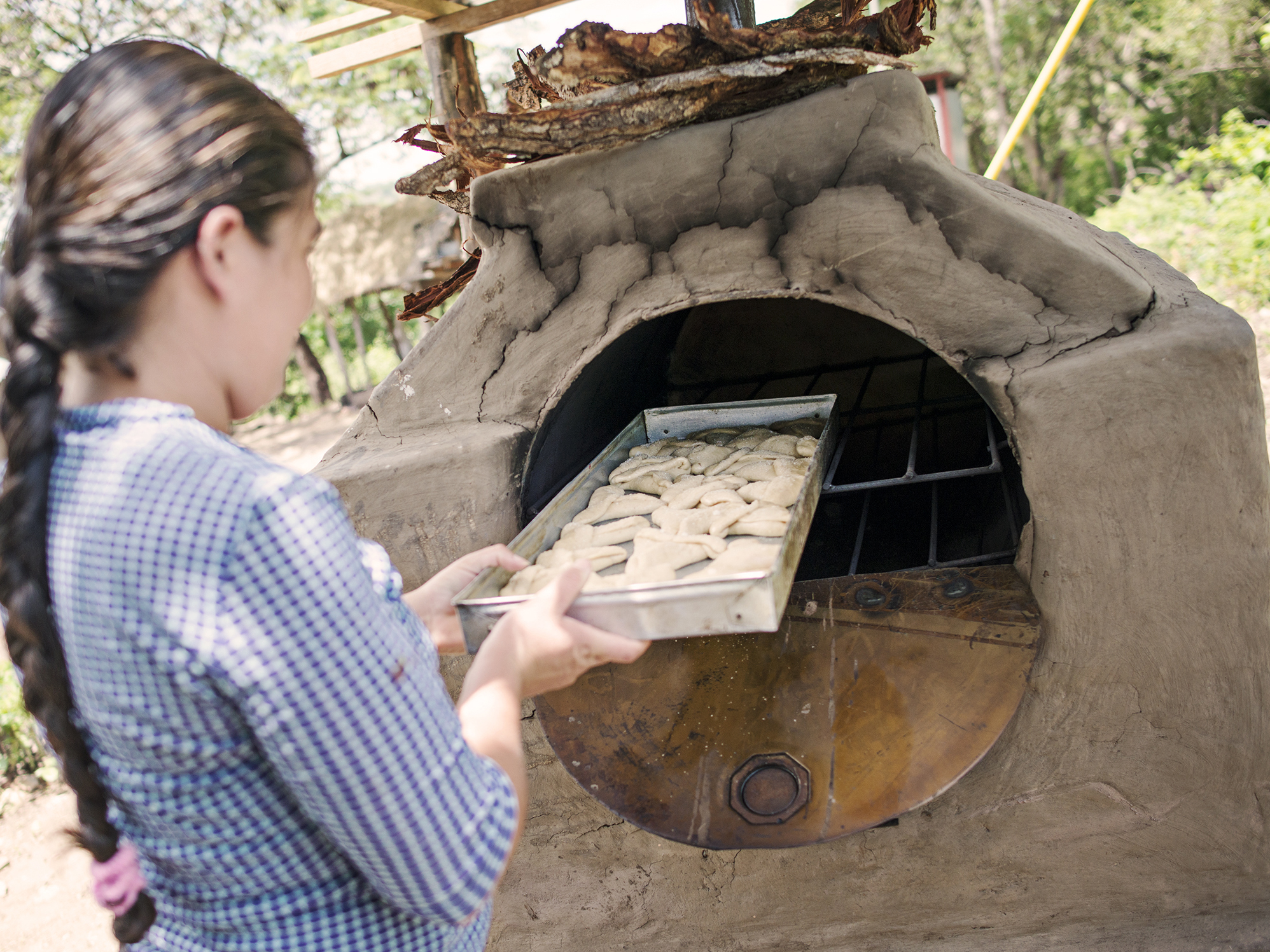
Nicaragua
EOS created a safer alternative to traditional ovens by using a metal barrel supported by bricks and rebar that allows for continuous baking and requires 92% less wood. EOS works with community leaders in rural Nicaragua villages, installs demonstration ovens, identifies entrepreneurs, and provides training and operational planning to assist each woman to be an independent businessperson.
Grant Visualization
Click on the map below for Interactive Visualization and Analysis of all Grants made by Project Redwood
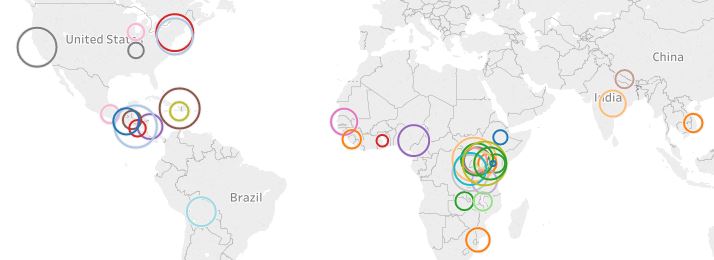
Mercado Global
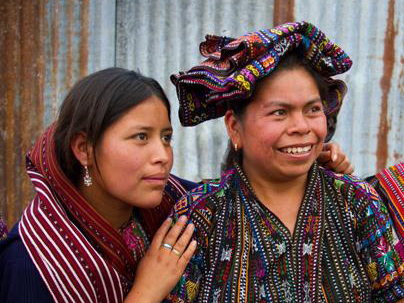
Guatamala
Mercado connects indigenous women in Guatemala to international markets for their weaving products, fostering sustainable livelihoods, and pioneering a socially responsible business model within the fashion industry. The 2017 grant funds a trainer, a Community Production Manager, and the costs of technical training and business development assistance for 150 new artisans at Mercado Global’s training facility and in cooperative communities.
return to top
We are pleased to report on Project Redwood’s accomplishments through 2017. Since inception, the time and contributions of members of our partnership have resulted in improving the lives of over 345,000 people living in poverty. Project Redwood has awarded $2,004,745 in grants to 84 projects in 33 organizations on 4 continents. This level of impact was achieved due to the commitment of our colleagues, and it has been very rewarding for us to serve in a leadership role as they achieved these results.
During 2017, Project Redwood’s partners worked to fulfill two important goals:
• To continue to raise funds, award grants and measure the results of projects that meet our stringent vetting requirements.
• To progress along our Pathway to 2020, exploring methods to expand our membership and increase our impact in reducing global poverty.
The work of Project Redwood to meet this first goal is described below by the committee chairs operating to raise funds, evaluate grant applications, coordinate the work of sponsors, monitor outcomes, and communicate activities to our partners. We are grateful to Kristi Smith-Hernandez for her leadership in coordinating these efforts as Executive Director and to all of the committee members who continue to dedicate their time and energy to attain our objectives.
Project Redwood initiated a series of actions aimed at expanding our membership. These included reaching out to other GSB classes through individual contacts and presenting Project Redwood at multi-class alumni events. We also began exploring a closer relationship with the GSB Alumni Office and the Center for Social Innovation. In addition, we strengthened our relationship with Tides Foundation, our fiscal sponsor, and gained introductions to other funders and philanthropies.
Key among our activities and accomplishments in 2017 were these:
• Granted just under $200,000 to eight grantees on three continents.
• Presented Project Redwood to multiple classes during Spring and Fall GSB reunion weekends.
• Co-sponsored with Tides Foundation, an Africa Forum which included presentations and discussions by leading funders, investors, and social entrepreneurs sharing ideas on supporting nonprofit ventures across Africa.
• Held our annual meeting in San Francisco in October, featuring presentations from grantees about their projects and the value of their relationship with Project Redwood.
• Sponsored a forum on affordable housing issues in New York City for parents of students at Cristo Rey High School, a four year grantee.
At the end of this productive year, Amy Minella replaced Donna as co-chair to serve with Dave for the coming year, and together, they made the commitment to continue along the Pathway to 2020, to expand our membership and impact against global poverty.
A huge thank-you to all GSB alumni who gave time, money and support to PRW in 2017. We sincerely appreciate each of your contributions. With your help in 2017 we funded eight more projects. We look forward to hearing from them in 2018.
We are deeply indebted to our committee leaders; Rick, Rich, Amy, Bill, Gail, Phil, DJ, Joan and Susan. You are the lifeblood of the organization. Without you and fellow teammates, we would not have projects to fund, be able to track their progress during the year or evaluate the results of each project. We are grateful for every dollar raised and for all communications about group and individual activities. A fuller description of the activities of each committee follows. Everyone has worked diligently to find and support social entrepreneurs addressing the challenges of global poverty.
Thanks also to Donna, Dave, Amy, Mike and Ed, our co-chairs, Treasurer and Secretary. Our weekly calls have been extremely useful to keep us on track as we implement Pathway to 2020 outreach and activities. (Our meetings are early Pacific time. Now that we’ve added Zoom videoconferencing, we no longer can get away with meeting in our PJ’s.)
The 2017 Annual gathering was held in October at the Tides Foundation headquarters on the beautiful Presidio grounds in San Francisco. We appreciate everyone who worked on and attended the meeting. For more details, click here.
We are actively seeking members of the wider GSB community to pursue our shared goal of reducing the effects of extreme poverty. We are happy to welcome Clara Chow (GSB’13) as a grantee, Kevin O’Donohue (GSB’87) as a co-sponsor, Amanda North (GSB’82) as a sponsor, Bonni Theriault (GSB’96) on the Committee of Sponsors, Ross Rosen (GSB’97) on a communications task force, and Laura Fratt (GSB’88) as a committee member on the Evaluation and Impact Committee.
2017 has continued to be a year of transition as we work to increase our impact on global poverty. Thanks for participating. If you have not been in a position to do so before, we’d love to have you join us now. Contact me at kristi at projectredwood dot org.
Thanks,
Kristi
return to top
Operating Committees are the Engines of Project Redwood
Click on the plus sign under the picture to read the committee report
Partner Funding drives strong results in 2017
Project Redwood’s tireless Partner Development Committee worked relentlessly to coax a rich stream of contributions from donors in 2017. Thanks to Dave Fletcher, Ken Inadomi, Rich Jerdonek, Ed Kaufman, Ann McStay, Amy Minella, Kirk Renaud, Kristi Smith Hernandez and Mike Watt for all their efforts to raise the funds to support eight more projects in 2017. We continue to find great fulfillment in working to alleviate global poverty and connecting with each of you.
Thank you as always for all your support.
Applications and grants continued to be impressive
Grant Review continued to seek, and to assist our Partners and Board in the selection of, the best projects to help people lift themselves out of extreme poverty. We reviewed seventeen preview applications this year for Project Redwood’s eleventh funding cycle. We invited fifteen that met our criteria to complete full applications.
The applications demonstrated PRW’s reach is widening while also reflecting our interest in being a multi-year catalyst for deserving organizations. Highlights for 2017 include: nine GSB alumni are new to sponsoring applications this year, including six from classes beyond GSB ’80; two projects are US based, three are located in Central America and nine are from six different African countries; one application came from an organization that was started by student teams in the Design for Extreme Affordability program at Stanford.
The GRC used the grant criteria updated at our January 2016 (Pathway to 2020) meeting, focusing on building human capital. We recommended fourteen projects to our Partners who then voted their preferences in August. Our Board funded eight of these through the generosity of our members. Four of these projects addressed poverty through education and training, and four through job creation and microenterprise.
We thank our sponsors and partners for supporting impactful projects that are helping hundreds of thousands of people around the world. Rich Jerdonek and Rick Agresta continue to serve as co-chairs. Our committee for 2017 included Steve Berg, Dick DeMarle, Dave Fletcher, Jorge Fernandez, Alan Kern, Jim Lavin, and Gerald Thomas.
Assessing grant outcomes and impact of grant dollars is our key focus
PRW places a high priority on the efficacy and impact of our grant dollars. To that end, the Evaluation and Impact Committee oversees grantee reporting and evaluates our projects and their impact. The committee coordinates the reporting process for grantees. We create interim and final report formats that grantees submit per their grant agreements and assess the content of these reports once submitted. The committee members, assisted by additional member liaisons, review and request clarifications to the reports. We evaluate the success of each project relative to the goals identified in their grant applications, including the impact on their communities. The EIC summarizes this information in a “dashboard” which is presented to the Board in June for the interim reports and February for the final reports.
PRW funded eight grants for Cycle 10/Grant Year 2016, of which two grants were to one organization, HEI. Of the seven projects that were completed, one grantee exceeded its goals, five met expectations, and only one fell short while still achieving a significant impact. One project, Development in Gardening, was delayed due to political issues, but is now on track to complete its revised project in 2017.
We categorized three of our projects as catalytic investments: Child Aid, Generation Enterprise (“GEN”) and EarthEnable. For Child Aid, our project led to them obtaining Guatemalan Ministry of Education recognition and a verbal agreement from State of Chimaltenango to use CA programs there. For GEN, we helped fund Zest Academy as a demonstration project, and they were able to leverage that into a Lagos State Government partnership (Ready Set Work) where they now have trained 2,000 young workers. EarthEnable launched a new value floor product which contributed to them winning The Dutch Postcode Lottery Green Challenge, one of the world's largest competitions in the field of sustainable entrepreneurship. Green start-ups from all over the world submit their promising sustainable business plans. The prize was €500,000 and mentorship from the Challenge team.
Understanding our impact on extreme poverty is helping us to better focus our funds and support. Since inception, more than 90% of our completed projects met or exceeded their goals and more than a third have significantly exceeded them. PRW grants have enabled our grantees to alleviate poverty conditions and increase income for more than 345,000 people.
The committee members include co-chairs Amy Minella and Rich Jerdonek, Ann Thoke Espy and Mary Pruiett. Kermit Eck and Laura Fratt (class of 1988) were added in November 2017, with Kermit replacing Rich as co-chair. Assisting in the reviews of grantee reports this year were our greatly appreciated liaisons: Joyce Appiah, Jorge Fernandez, Carla Fitzgerald, Susan Ip, and Ed Kaufman.
Communications keep us connected
The Communications Committee remains as busy as ever…overseeing the technology needs of PRW along with development of all our marketing and messaging content to ensure that our partners, grantees, fellow Stanford colleagues and any others interested in Project Redwood are always up-to-date on the latest news and activities. At any time, we’re juggling assorted projects. Whether it is sharing highlights of initiatives underway to support our mission, or updates on programs, meetings and activities, or providing recaps about our grantees, or posting blogs touting the adventures or inspiring exploits of classmates, our goal is to maintain a vibrant and connected community. We also look for every opportunity to build more awareness about Project Redwood and invite others to get involved.
Expect to see emails, cards and notes from us throughout the year….and be sure to regularly check out the PRW website; it’s a great resource to catch up on all that is going on, plus it’s chock full of information about the history of our organization. You’ll also come across PRW news in assorted GSB and other Stanford media platforms. Each spring we enjoy creating the annual report which lets all our constituents see what PRW has accomplished in the last year.
We’re a rather small team; it’s been just Joan Agresta, DJ Crane, Susan Miller and Laura Power with added support from PRW Co-chair, Donna Allen, and Executive Director, Kristi Hernandez. As 2018 kicks in, we’re sorry to see Laura step down, but thrilled to welcome Elizabeth Gage and delighted Donna will stay involved even as she steps down from her Board chair role. And, we welcome anyone who wants to join us…for an opportunity to support PRW in a most enjoyable and productive way.
Refining ways to help grantees
During 2017, this committee continued its efforts to provide a wide array of non-financial assistance and support to our grantees. In response to their feedback, we focused our support on strategic planning, board governance, financial controls and fundraising. In addition, after defining an expanded role for sponsors in 2016, over this past year we saw our sponsors working more actively with our grantees. They assist with applications and the completion of timely progress updates on results, as well as maintain ongoing dialogue to uncover other ways to assist grantees with non-financial needs.
The committee organized support materials for all of this so that the assorted advice and tips are more accessible to sponsors and grantees.
The committee looks forward to expanding the effective non-financial support and collaboration that PRW has provided to past and current grantees. Many thanks to the committee members for Grant Year 2016: Martha Clark, Charlie Baum, Bill Westwood, Kirk Renaud, Rick Agresta, Rich Jerdonek, Kevin O’Donohue, Joan O’Connell and Gail Schulze. We welcome our new committee members for Grant Year 2017 (started October 1) which include: Bill Westwood, Gail Schulze, Charlie Baum, Rich Jerdonek, Carla Fitzgerald, Phil Jonckheer, Jorge Fernandez, Kevin O’Donohue (GSB’87), Amanda North (GSB’82), Bonni Theriault (GSB’96), and Ann McStay.
return to top
Thanks to volunteer efforts, 92% of donations were available for grants in 2017
Highlights of 2017 Fund Activity
Opening Balance: $130,917
Revenue: $235,086
Disbursements: $214,861
Closing Balance: $151,142
return to top
Africa Forum
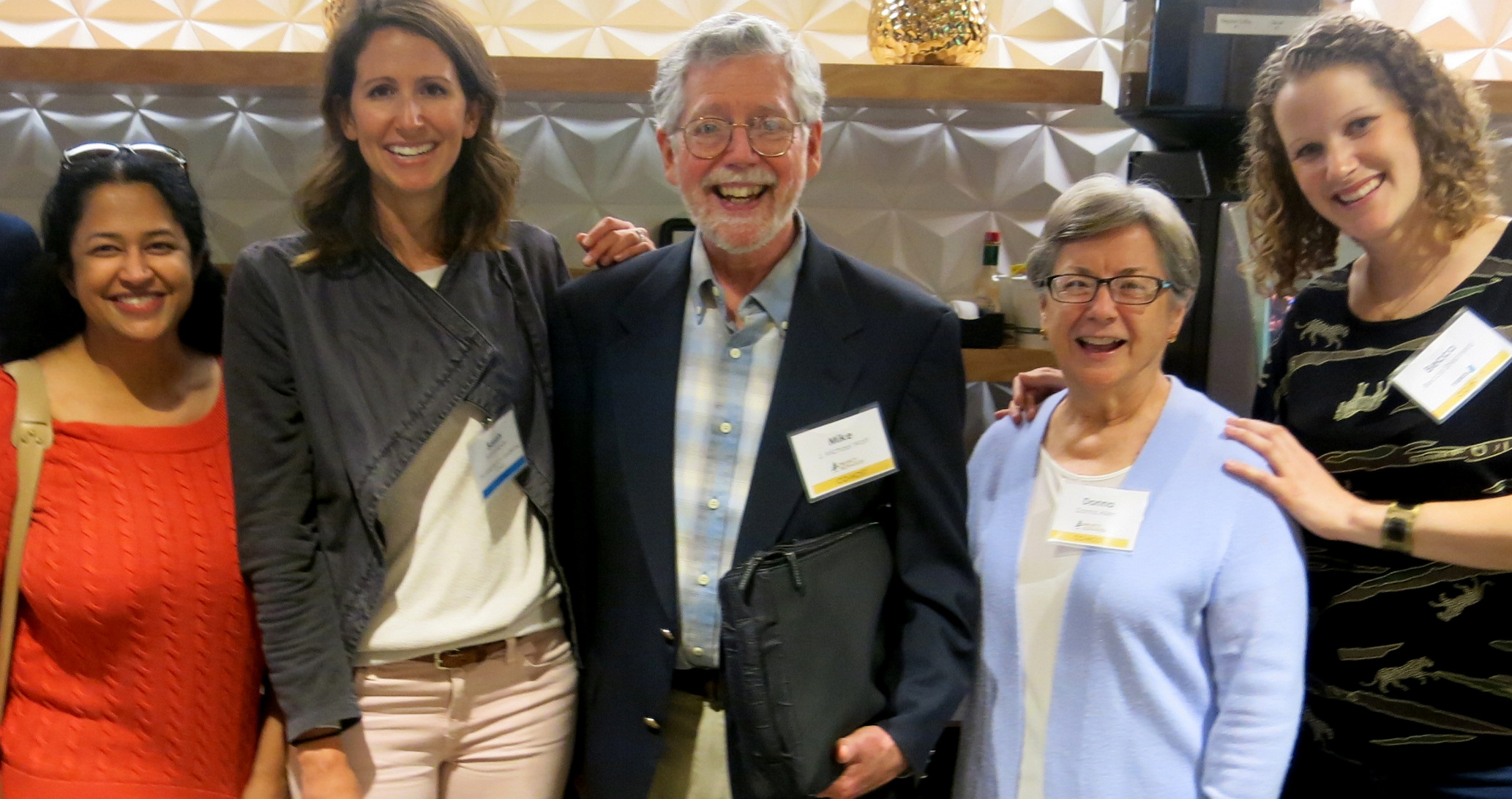
Meenakshi Abbi (former Rockefeller Philanthropy contact), Sarah Koch from DIG (who presented at the forum),
Mike Watt, Donna Allen, and Becca Shepherd (Tides contact and program organizer)
In 2017, Project Redwood experienced a special advantage of operating under the fiscal umbrella of the Tides Foundation when we were invited to co-host and co-sponsor a forum on philanthropic investing in Africa. The day-long event, held in the Google.org offices in San Francisco, brought together leading funders, investors, and social entrepreneurs to share ideas on how to support nonprofit ventures across Africa. Project Redwood partners and grantee representatives participated in and learned from discussions of strategies that can be deployed to understand the landscape in Africa and to direct investments and support on-the-ground practitioners.
Among the day’s many topics, several are key to Project Redwood’s work in Africa. The importance of measuring impact in both monetary terms and in marks of quality change and improvement was reinforced. Results from grantee action – and not from others such as government – should be reported to donors and celebrated. Also reinforced was the concept that not all grants have to be made to “innovative” work to drive growth or success; sometimes replication of what has been proven to work can achieve the desired scale.
Through this event, Project Redwood made connections to other funders – experts in media, impact investing, on-the-ground philanthropic work, and basic foundations to finding and supporting projects on the continent. Perhaps most important, we found that our focus on awarding grants to small stage, established startup projects on their way to scale fulfills a gap in philanthropy. This targeted grant-making, our version of Catalytic Capital, is the “sweet spot” that Project Redwood occupies, and it is critical to organizations that aspire to scale.
To view more pictures taken at the forum please click here.
Design for Extreme Affordability
Since 2008, our second grant cycle, Project Redwood has supported Stanford’s Design For Extreme Affordability course, a two-quarter course offered by the Hasso Plattner Institute of Design through the Graduate School of Business and the School of Mechanical Engineering, and open to all seven Stanford graduate schools. This multidisciplinary, project-based experience creates an environment in which students learn to design products and services that will change the lives of the world’s poorest citizens. Students work directly with course partners in developing countries on real world problems that the partners bring to the course, the culmination of which is implementation of actual solutions and real change.The objectives of the Design For Extreme Affordability course (Extreme) closely match the mission of Project Redwood – finding and assisting on-the-ground projects that help populations living in poverty to increase their standard of living. The student teams may choose to take their projects beyond the classroom to perfect their prototypes and business plans, and travel to perform field testing and further development of their models. This extension of the Extreme class is done in the Design School’s Social E Lab. Project Redwood has had two supporting roles – as one of the funders of Extreme student teams that are continuing their work over the summer in the Social E Lab, and as judges on the Social E Lab pitch day during which decisions are made on funding of the teams for extended work.
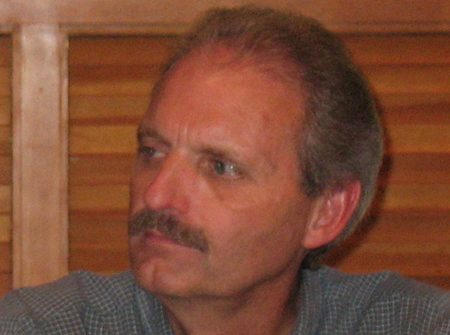 Over ten years, Randy Blair has had the role of principal liaison to Extreme and the Social E Lab, and he was joined by Donna Allen, Mike Child, Jon Hamren, Kristi Smith-Hernandez, Gail Schulze and Mike Watt. They have participated in evaluating and recommending funding for projects that include health, nutrition and medical applications; water filtration; sanitation; irrigation, fertilizer and farming methods; and solar power and lighting. Project Redwood representatives have been continually impressed by the student teams, their presentations, their plans, the success of their endeavors – and the fact that their objectives so closely parallel those of Project Redwood.
Over ten years, Randy Blair has had the role of principal liaison to Extreme and the Social E Lab, and he was joined by Donna Allen, Mike Child, Jon Hamren, Kristi Smith-Hernandez, Gail Schulze and Mike Watt. They have participated in evaluating and recommending funding for projects that include health, nutrition and medical applications; water filtration; sanitation; irrigation, fertilizer and farming methods; and solar power and lighting. Project Redwood representatives have been continually impressed by the student teams, their presentations, their plans, the success of their endeavors – and the fact that their objectives so closely parallel those of Project Redwood. The Extreme and Social E Lab faculty and staff have repeatedly expressed their appreciation for Project Redwood’s contributions to their funding pool and, more importantly, Project Redwood’s participation in the evaluation of teams and their business plans. This symbiotic relationship has also been rewarding to Project Redwood. We have been introduced to Stanford student social entrepreneurs who have moved their projects beyond the classroom through the initial prototype-proving stage to initiate viable work to solve real world problems. Several of these projects that originated in Extreme have formed non-profit organizations, applied for Project Redwood grants, been approved through our thorough vetting process, and been funded.
• Embrace – invented a baby warmer to save the lives of underweight babies.
• Pepper Eater – produced a grinder that crushes dried, whole red peppers into small flakes improving productivity and reducing pepper-oil damage to the skin and eyes of women who formerly did the process by hand .
• Miraclefeet – created an improved brace designed to treat clubfoot, a frequently occurring congenital deformity that if untreated dooms children to a lifetime of deformity and social ostracism.
• EarthEnable – developed a method to make and install healthy and affordable floors to replace dirt floors.
Embrace received numerous international awards for their baby warming product and has formed Embrace Innovations, a for-profit social enterprise, selling products internationally. MiracleFeet and EarthEnable both recently won major grants from international funders and have acknowledged the importance of Project Redwood’s assistance and “catalytic capital.” Several of the Extreme entrepreneurs have remained involved with us in activities including the Africa Forum we co-hosted in October 2017 with Tides Foundation.
Project Redwood’s Pathway to 2020 envisions continuing this mutually beneficial relationship as we explore expanding our affiliation with the GSB and creating an alumni/student/faculty ecosystem for social entrepreneurs to further the GSB’s mission: “Change lives. Change organizations. Change the world.”
return to top
Twelve GSB '80 Classmates were profiled in blog entries in 2017
Click on the image to read the post. And Subscribe!
Marc Vallen
"Unexpected Entrepreneurship"
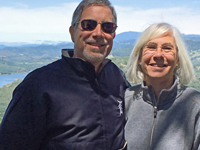 Marc Vallen reflects on his career in the energy industry, and the sometimes unexpected opportunities spawned by restructuring and upheaval.
Marc Vallen reflects on his career in the energy industry, and the sometimes unexpected opportunities spawned by restructuring and upheaval. Marc shares his experiences, and how, although he thought of himself as a dyed-in-the-wool corporate employee, he took advantage of some entrepreneurial opportunities.
Amy Kommer Minella
"Changing Lives on the Reservation"
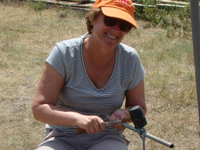 Unless you go and stay on the Reservation, it is difficult to fathom how a group of people in the United States can be living in such economic poverty. Hope is a commodity that can be as difficult to find as employment.
Unless you go and stay on the Reservation, it is difficult to fathom how a group of people in the United States can be living in such economic poverty. Hope is a commodity that can be as difficult to find as employment. The work of Simply Smiles is intended to bring that hope to the small, 200-resident town of La Plant on the Reservation. The poverty there can be staggering. The reasons are many and complex.
Mo Virani
"A Core Belief in Girls' Education"
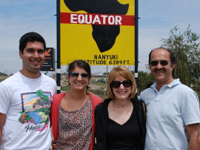 Mo Virani grew up in a community in Kenya that valued diversity, which nurtured his adult commitment to educating girls. For many years, he's worked closely with Project Redwood grantee Daraja Academy. "The most satisfying aspect of working with Daraja is watching the transformation of the girls."
Mo Virani grew up in a community in Kenya that valued diversity, which nurtured his adult commitment to educating girls. For many years, he's worked closely with Project Redwood grantee Daraja Academy. "The most satisfying aspect of working with Daraja is watching the transformation of the girls."Dan Whalen
"Digging In in Bosnia and Herzegovina"
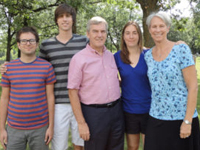 Dan Whalen reflects on his lengthy and personal work with youth in Bosnia and Herzegovina. "For most applicants, our interview was the first time in their lives that anyone ever asked them what had meaning and significance for them," he says of the program's selection process.
Dan Whalen reflects on his lengthy and personal work with youth in Bosnia and Herzegovina. "For most applicants, our interview was the first time in their lives that anyone ever asked them what had meaning and significance for them," he says of the program's selection process.Phil Jonckheer
"Phlipper's Aqua Journey Or..."
 I began my aqua journey as a child in the Philippines. It was a way to deal with the brutal tropical heat. Playing in pools also was fun. When I began racing at six, my mom would stand at the end of each race with an ice cream cone. That too was a way to deal with the tropics: nothing quite like an ice cream cone from mom after a race. I miss my mom standing at the end of my races with that treat and there isn’t one race I swim when I don’t think about her with that chocolate-covered coconut ambrosia.
I began my aqua journey as a child in the Philippines. It was a way to deal with the brutal tropical heat. Playing in pools also was fun. When I began racing at six, my mom would stand at the end of each race with an ice cream cone. That too was a way to deal with the tropics: nothing quite like an ice cream cone from mom after a race. I miss my mom standing at the end of my races with that treat and there isn’t one race I swim when I don’t think about her with that chocolate-covered coconut ambrosia.Antonio Puron
"Award Winning Philanthropy"
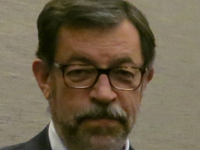 GSB classmate Antonio Puron’s education non-profit Inoma recently received a 2016 World Summit Award (WSA) for its comprehensive elementary school focused product, Tak-Tak-Tak.
GSB classmate Antonio Puron’s education non-profit Inoma recently received a 2016 World Summit Award (WSA) for its comprehensive elementary school focused product, Tak-Tak-Tak. Congratulations to Antonio and his Inoma team for their tenacity in creating a world-class product that is now educating hundreds of thousands of children in Mexico!
Ben Fox
"Don't Count Anyone Out"
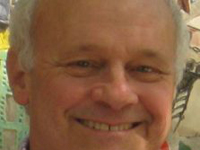 I had a 60 year-old woman who one day just cried and said this is the first time I’ve ever understood fractions.
I had a 60 year-old woman who one day just cried and said this is the first time I’ve ever understood fractions. I’m thinking of another guy who couldn’t sit still. So finally, I said if you need to spend five minutes walking up and down the corridor to settle down, it’s ok. I had to put limits on how many times he could do that. It took him a couple of years, but eventually he came in and said he had passed all the parts of the test.
For all of them, it is important to be encouraging, not critical. As my most recent boss said: we love them! With some of the tougher cases, it can take a while to get a student’s trust. Some of them are not used to having somebody on their side, but they do figure it out that we want them to succeed.
Dave Fletcher
"I Used To Hate Reunions"
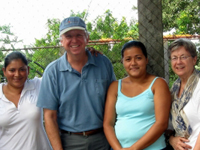 I used to hate reunions.
I used to hate reunions. Hate is probably too strong, but I sure didn’t love them. Reunions were something I felt I ought to attend but I didn’t have much enthusiasm for them. I had kept up with a few classmates, but I felt I hadn’t gotten to know most as well as I could have. I didn’t know what many folks were doing. I assumed I was the only non-billionaire in the class. Reunions were not much fun and I didn’t look forward to them.
In 2005, things changed. At my class of 1980’s twenty-fifth reunion, a significant number of classmates decided that we wanted to do something together, something positive. Shortly thereafter, Project Redwood was formed.
Skip, Maren, Mike and Rich
"Novel Ways to Give Back"
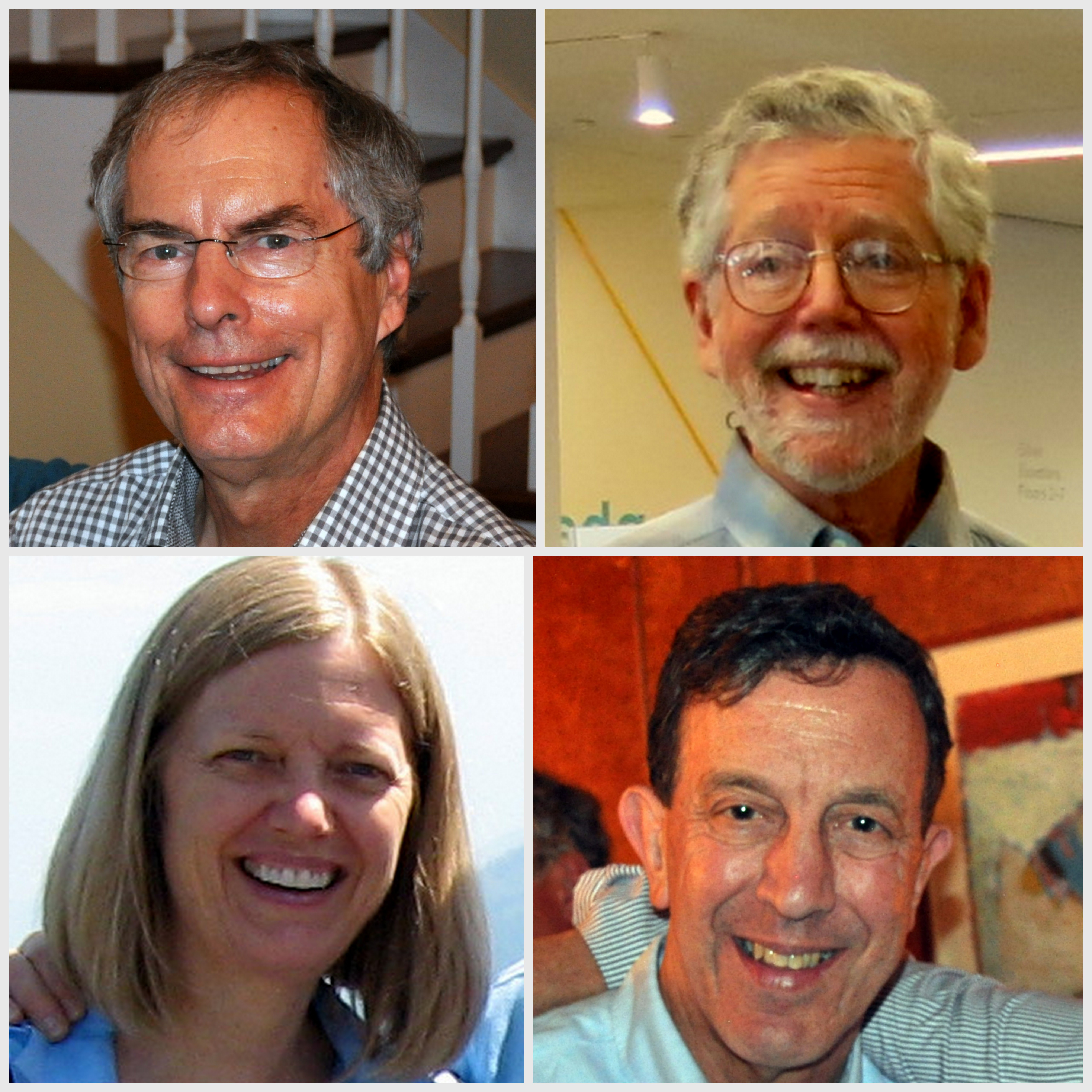 "Sometimes something comes up, and it feels right", says Skip.
"Sometimes something comes up, and it feels right", says Skip.“Mission work isn’t limited to building schools or plowing fields.” Maren says. “The organizations we support can readily avail themselves of the managerial and administrative expertise a business person can bring.”
“The whole idea of progress out of poverty for me has an important moral dimension,” Mike says, “but there’s also a part of it that is enlightened self-interest; either we expand hope worldwide or we’re going to be in for a century of [trouble].”
“I reached a point in my career and with my family and I felt, gee, I have to get involved more with the community and get outside my comfort zone,” Rich says.
